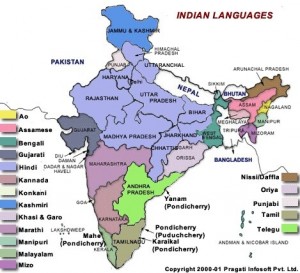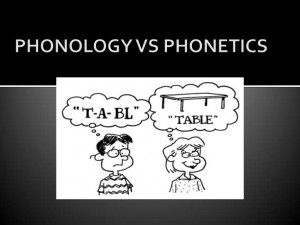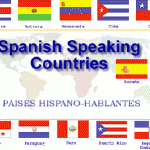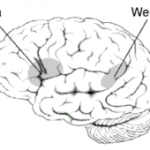November, 2014
now browsing by month
Link Blogging by Tian’ao Wang
Tian’ao Wang’s linguistic blog
-
Language Change
The appearance of a new word marks only the beginning of its existence. Once generally adopted as part of the language, the meanings and applications it has for speakers can shift dramatically, to the point of causing misunderstandings. For example, “villain” once meant a peasant or farmhand, but has come to imply a criminal individual in modern English.Read more

-
Animal Communication
Language is a cognition that truly makes us human. Whereas other species do communicate with an innate ability to produce a limited number of meaningful vocalizations (e.g. bonobos), or even with partially learned systems (e.g. bird songs), there is no other species known to date that can express infinite ideas (sentences) with a limited set of symbols (speech sounds and words).Read more

-
-
Semantics
Syntax highlighting and indent style are often used to aid programmers in recognizing elements of source code. Color coded highlighting is used in this piece of code written in Python.Read more。

-
Linguistics
From Wikipedia, the free encyclopedia Jump to: navigation, search This article is about the field of study. For the journal, see Linguistics (journal). “Linguist” redirects here. For other uses, see Linguist (disambiguation) Read more

-
Indian Languages
Indigenous languages of the Americas are spoken by indigenous peoples from Alaska and Greenland to the southern tip of South America, encompassing the land masses that constitute the Americas. These indigenous languages consist of dozens of distinct language families, as well as many language isolates and unclassified languages.Read more

-
Language and Culture
The power of language to reflect culture and influence thinking was first proposed by an American linguist and anthropologist, Edward Sapir (1884–1939), and his student, Benjamin Whorf (1897–1941).Read more

-
-
Phonetics VS Phonology
Phonetics deals with the production of speech sounds by humans, often without prior knowledge of the language being spoken. Phonology is about patterns of sounds, especially different patterns of sounds in different languages, or within each language, different patterns of sounds in different positions in words etc.Read more

What is Morphology?
Webster’s New World Dictionary offers several most frequently used senses of the word”language”,namely,human speech;the ability to communicate by this means;a system of vocal sounds and combinations of such sounds to which meaning is attributed,used for the expression or communication of thought and feelings;the written representation of such a system;any means of expressing or communicating,as gestures,signs,or animal sounds;Read more
-

-
Language Acquisition
Semantics is een groep van gelijkgestemde individuen met een enorme passie voor talen, communicatie en coaching. Wij garanderen dynamische en begeesterende opleidingen met uitstekende resultaten, en putten hierbij uit een rijke pedagogische ervaring en business knowhow. Wij komen al uw behoeften tegemoet, helpen u uw doelstellingen te verwezenlijken en bouwen mee uw toekomst op.Read more
-
Syntax
Language storage and access studies how language is stored in our brain and how do we access it when we need it.The ability of human to speak and to understand speech requires an enormous amount of brain resources.Read more
-
Language Storage and Access
A recent advertisement for Lockheed products claimed that if William the Conqueror had not had technological superiority when he invaded England in 1066, “this very ad might have been written in Anglo-Saxon”. What’s wrong with this picture? Two things: First, all living languages are always changing, so the Old English spoken by William’s adversaries would be greatly different from Modern English even if there had been no Norman conquest.Read more
-
Language Variation
In linguistics, morphology is the identification, analysis, and description of the structure of a given language’s morphemes and other linguistic units, such as root words, affixes, parts of speech, intonations and stresses, or implied context. In contrast, morphological typology is the classification of languages according to their use of morphemes, while lexicology is the study of those words forming a language’s wordstock. Read more
-
Blog4 Miki Watanabe
Language Acquisition (English)
As a non-native speaker, who did not grow up in an environment surrounded by English speakers, learning English has been incomparably difficult.
http://www.koreaherald.com/view.php?ud=20130729000452
However, it is also true that there are still many people who do not give up learning because of their age. They always encourage me and keep me motivated.
http://education.kera.org/its-never-too-late-to-learn-says-85-year-old-student-learning-english/
In my university in Japan, I was taking a lot of English courses including writing, reading, listening and speaking. One of my professors suggested us to read news in English online and every class, we had to summarize the article and present in front of the class.
BBC Learning English http://www.bbc.co.uk/learningenglish/
Voice of America English News http://www.voanews.com/
Breaking News English http://www.breakingnewsenglish.com/mini_lessons.html
CNN Student News http://www.cnn.com/studentnews/
To improve our listening skill, we also used internet sites to play English games. It made it easier for us to keep learning because we could have fun and study at the same time.
Lyrics Training http://lyricstraining.com/
Games to learn English http://gamestolearnenglish.com/
Even though we study and practice hard, one thing which I would say the hardest to acquire is the native accent. I have been told by many friends that I have some Japanese accent when I speak.
https://www.youtube.com/watch?v=ECJRMBjX4PE
https://www.youtube.com/watch?v=7hO9V_gAs0M
The difference between British English and American English always confuses us as well. In Japan, since we’ve been taught American English in school, most students are not familiar with British accent and spelling. It takes a lot of practice for us to learn and to be able to understand British English because I sometimes sounds like a completely different language.
https://www.youtube.com/watch?v=fsdhOKZv0uo
http://webspace.ship.edu/cgboer/dialectsofenglish.html
Blog 5: Masterpost McGonigal
A Field of Links- By Julia McGonigal
I’m planning on taking an ASL class while at SDSU. I would love to become fluent but it might be a bit hard if this is true
My parents have always pushed me to learn a language besides Spanish, and every time they do I like to pull out this bad boy !
I’ve always heard that once you speak one latin based language you can learn others easily.
Who know’s if that’s true though? It always seems that languages can be easily learned when you are a baby, not as a young adult
Another suggested language that was suggested for me to try and learn is computer programming language. It seems a bit challenging to me, but I think it could be really cool if I was learning stuff like this
I love that movie Avatar, and I’m totally going to geek out here but there’s tons of different ways to learn the language!
I’ve been trying to figure out if the language itself could be taught as an elective, I’m pretty sure some people have attempted it…
But I mean I know that the individuals who created the Na’vi language studied many different linguistic aspects
Some even go so far as to figure out the specific phonology of the language!
But enough about the already existing Na’vi language…I think it would be interesting to see what goes into developing your own language
It’s the strangest blog I’ve ever found…and yet it is extremely fascinating. I think if I were to create my own language it would just be a bit of confusion.
The best thing for me to do is to find a language that I find interesting, and follow a passion. In this case it’s definitely going to be the Na’vi language! And here’s how I’m going to learn it












 D5 Creation
D5 Creation